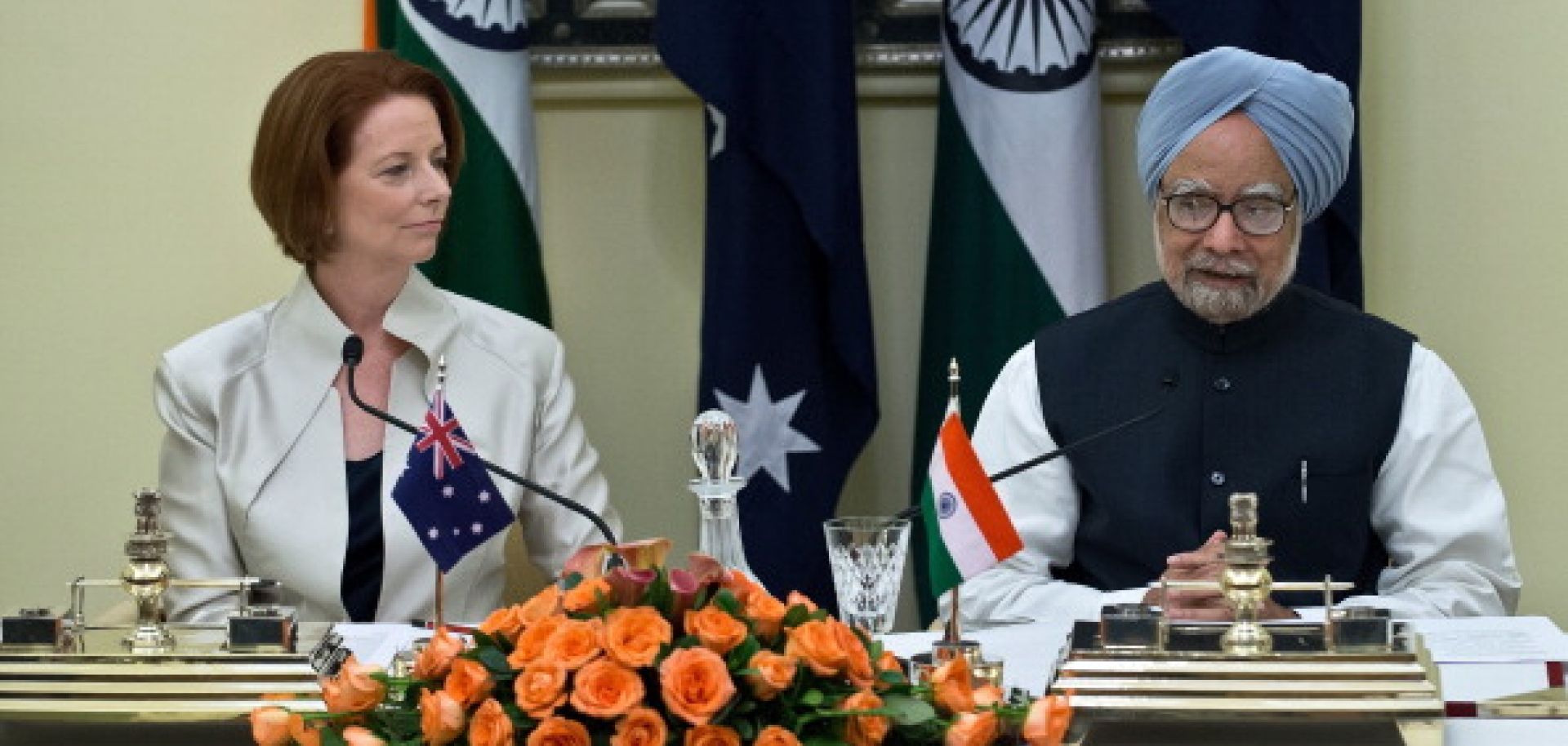ASSESSMENTS
India's Nuclear Energy and Regional Cooperation
Oct 18, 2012 | 10:15 GMT

PRAKASH SINGH/AFP/Getty Images
Summary
Australian Prime Minister Julia Gillard concluded her first visit to India on Oct. 17. During the visit, Gillard and Indian Prime Minister Manmohan Singh discussed the resumption of uranium sales, since Australia overturned legislation in December 2011 that banned uranium sales to India — a country that has not signed the Nuclear Nonproliferation Treaty. India's energy needs are rising — natural gas consumption rose nearly 30 percent between 2009 and 2010 — and domestic production of coal, natural gas and oil are declining due to poor management, lagging infrastructure and a difficult regulatory environment. Nuclear energy has recently re-emerged as one of the central government's key policy initiatives, despite significant local protests, a lack of domestic uranium supplies and the possession of only rudimentary nuclear technology.
The political and security concerns that surround nuclear power, coupled with India's need to import uranium fuel and nuclear technology, is driving New Delhi to reassess its relationships with Indo-Pacific powers. This has created a situation in which India, Japan and Australia can strengthen regional cooperation, with the United States' encouragement as Washington continues to focus its strategy more on the Asia-Pacific region.
Subscribe Now
SubscribeAlready have an account?
